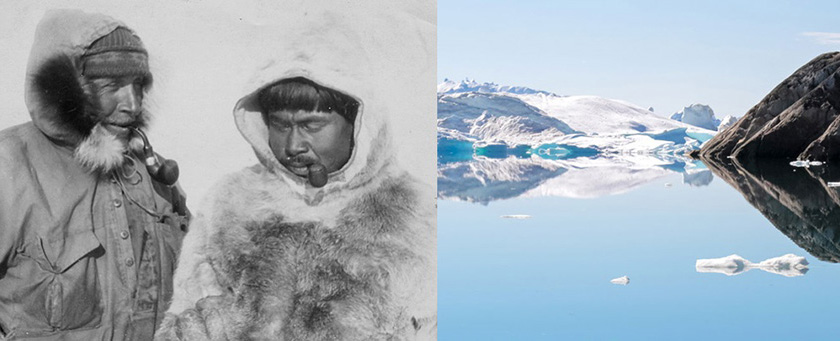Weg_RE
FWF Project: Centennial Climate Drivers of Glacier Changes in Greenland

In this FWF funded project we take an interdisciplinary approach to improve our understanding between glacier changes and the underlying climatic drivers. The project is based on archival data from the legendary expedition of the Graz-based researcher Alfred Wegener in the years 1929-1931. During this ambitious expedition climatological and glaciological data were collected, which are excellently documented and available for the project in the archives of Graz University.
Climatologically, these are of particular relevance because they were at the core of a short warm phase in which air temperatures were similar to those currently observed. Moreover, they are available at a temporal resolution that is unique for the time.
Almost a century later, we will therefore again monitor the same parameters over three years at exactly the same measurement sites and under similar atmospheric conditions, albeit under fundamentally different geometric boundary conditions. We will expand the monitoring to include modern methods based on artificial intelligence and innovative process studies. Using modeling and deep learning approaches, patterns will be compared and feedback mechanisms quantified on a local scale. Dynamic models are then used in a next step to perform sensitivity studies. This allows us to determine which factors are causing the observed changes and how glacier surface and atmosphere influence each other. This will give the results further spatial relevance, as the geometric configuration of the study area is representative of large parts of the Greenland ablation area. An important component of the work will also be the interaction and involvement of the Greenlandic people. We will be logistically supported by local operators and at the end of the project the results of the research will be presented in the neighboring settlements. Further outreach activities beyond the core project are already planned.





